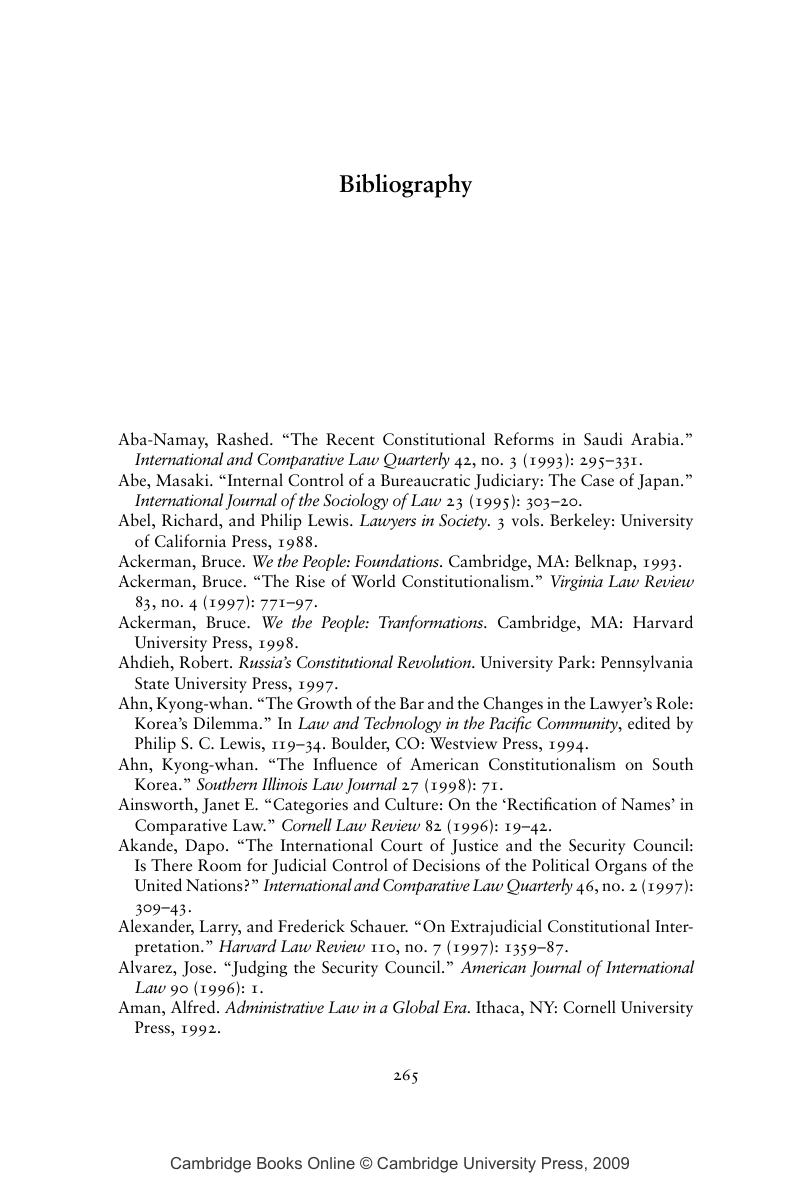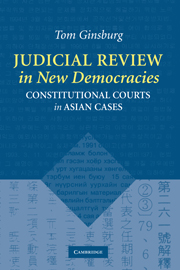Book contents
- Frontmatter
- Contents
- Acknowledgments
- Notes on Usage
- Judicial Review in New Democracies
- Introduction: The Decline and Fall of Parliamentary Sovereignty
- 1 Why Judicial Review?
- 2 Constituting Judicial Power
- 3 Building Judicial Power
- 4 Courts in New Democracies
- 5 Confucian Constitutionalism? The Grand Justices of the Republic of China
- 6 Distorting Democracy? The Constitutional Court of Mongolia
- 7 Rule by Law or Rule of Law? The Constitutional Court of Korea
- 8 Conclusion: Comparing Constitutional Courts
- Bibliography
- Index
- References
Bibliography
Published online by Cambridge University Press: 21 July 2009
- Frontmatter
- Contents
- Acknowledgments
- Notes on Usage
- Judicial Review in New Democracies
- Introduction: The Decline and Fall of Parliamentary Sovereignty
- 1 Why Judicial Review?
- 2 Constituting Judicial Power
- 3 Building Judicial Power
- 4 Courts in New Democracies
- 5 Confucian Constitutionalism? The Grand Justices of the Republic of China
- 6 Distorting Democracy? The Constitutional Court of Mongolia
- 7 Rule by Law or Rule of Law? The Constitutional Court of Korea
- 8 Conclusion: Comparing Constitutional Courts
- Bibliography
- Index
- References
Summary

- Type
- Chapter
- Information
- Judicial Review in New DemocraciesConstitutional Courts in Asian Cases, pp. 265 - 280Publisher: Cambridge University PressPrint publication year: 2003



